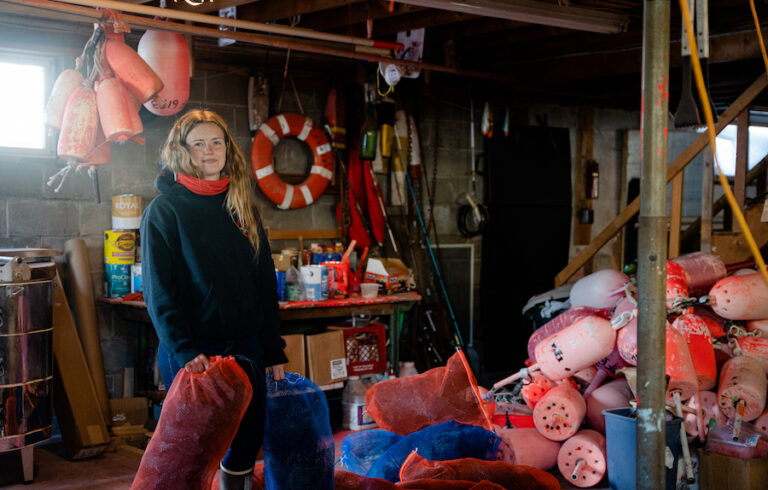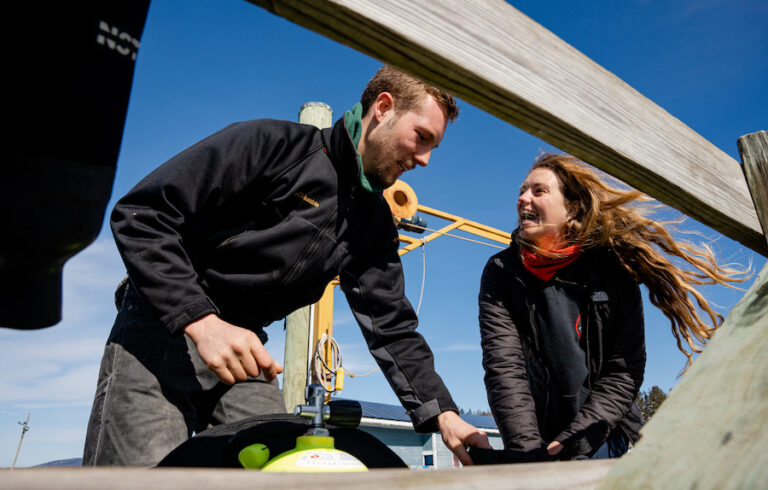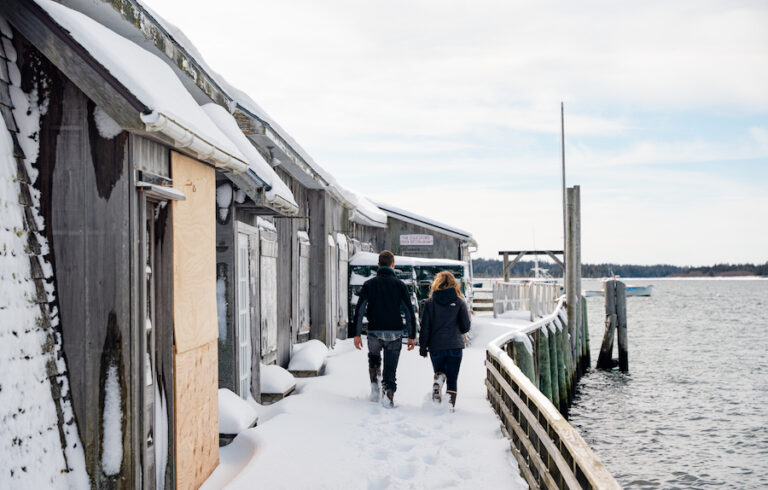Aquaculture creates new opportunities for young Mainers, benefits the local economy, empowers local fishermen, and charts a course towards a more vibrant and sustainable future for our working waterfront communities.
“We both would like to be an example of people within the (lobster) industry that are hopeful for its future but also interested in diversifying our income in other ways while being on the water.”
– Emma Fernald, a multi-generational resident of Islesford, sternman, scallop farmer, and potter
Sign up to receive news and updates, and join us as we boldly navigate climate and economic change with island and coastal communities to expand opportunities and deliver solutions.
On Little Cranberry Island off of Mount Desert, Emma Fernald and Sam Flavin are committed to working on the water and are finding new ways to sustain Maine’s fishing industry through innovation, determination, and hard work. Grants from Island Institute helped jump start their efforts.
In addition to lobstering, they have started new ventures—a small-scale scallop farm and diving services for fishermen and aquaculturists. With the help of Compass Workforce Grants from Island Institute, both were able to make headway in their businesses. Emma was able to purchase equipment to collect young scallops (or spat), and Sam had the chance to complete his diving certification and buy cold water scuba gear.
Climate change and shifting regulations create uncertainty for the lobster fishery and the people who depend on it. But creating more opportunities to work on the water can be a way to manage an unpredictable fishery. Together, we can stand behind innovators like Sam and Emma and provide fishing communities with the enduring support they need to build a resilient working waterfront.
Join Our Community
Since 1983, Island Institute has tackled the most pressing issues facing Maine’s island and coastal communities. Join us!




